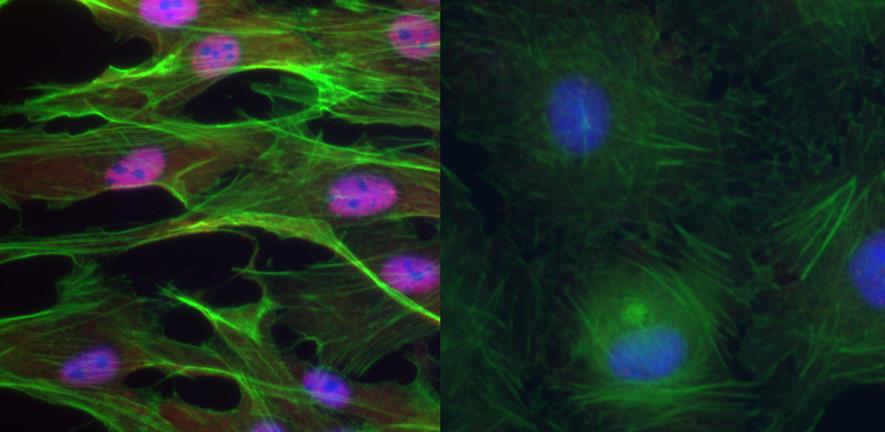
Professor Chris Smith's group have published an article in the journal eLife identifying RBPMS as a smooth muscle master splicing regulator in mammals.
All the cells in our body contain the same genetic information, but they only switch on the genes that they need in order to fulfill their specific role within the organism. Genetic sequences known as enhancers can turn on the genes that are required by a particular cell to perform its tasks.
Once a gene is activated, its sequence is faithfully copied into a molecule of RNA which contains segments that code for a protein. A molecular machine then processes the RNA molecule and splices together the coding segments. RNA binding proteins can regulate this mechanism, and help to splice the coding sections together in different ways depending on the type of cell. This process, known as alternative RNA splicing, therefore creates different RNA templates from the same gene. This gives rise to related but different proteins, each suited to the needs of the particular cell in which they are made.
However, in some cell types, exactly how this happens has not yet been well documented. For example, in cells that line blood vessels – known as vascular smooth muscle cells – the RNA binding proteins that drive alternative splicing have not been identified.
To find these proteins, Nakagaki-Silva et al. used catalogues of DNA regions called super-enhancers as clues. These sequences strongly activate certain genes in a tissue-specific manner, effectively acting as labels for genes that are important to a given cell type. In vascular smooth muscle cells, if a super-enhancer switches on a gene that codes for an RNA-binding protein, this protein is probably crucial for the cell to work properly.
The approach highlighted a protein called RBPMS, and showed that it controlled alternative RNA splicing of many genes important in smooth muscle cells. This may suggest that when RBPMS regulation is disrupted, certain diseases of the heart and blood vessels could emerge. Finally, the results by Nakagaki-Silva et al. demonstrate that super-enhancers can signpost genes important in regulating splicing or other key processes in particular cell types.
This work was supported by funding from the Wellcome Trust and the British Heart Foundation.
